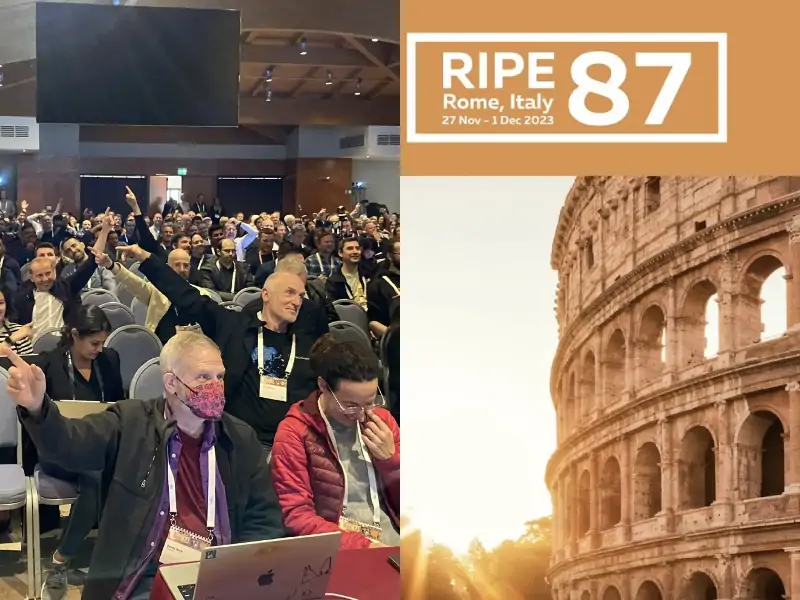- A key, and sometimes controversial topic from inital sessions at RIPE 87, focused on sustainable actions by extending the lifespan of products, and switching them off.
- RIPE 87 discussions shed light on the sustainability challenges faced by the internet, including energy consumption and hardware reliability.
Imagine a world where the internet dozes off to save the planet. In this intriguing vision presented at RIPE 87, extending the life and rest periods of our digital infrastructure could be key to reducing its environmental impact. Romain Jacob unveiled the potential of ‘sleeping’ networks and aging hardware, inviting audience members to rethink their approach to technology, and to consder a future where sustainability and efficiency walk hand in hand.
Also read: Randy Bush honoured at RIPE 87 after calling RIRs a ‘monopoly’
Challenging conventions: A new perspective on internet energy consumption
At the grand RIPE87 conference, Romain Jacob delivered an insightful talk titled “The Internet of Tomorrow Must Sleep More and Grow Old,” sparking deep thought among attendees. He challenged the audience’s preconceptions with a thought-provoking question: which consumes more energy, data centers or telecom networks? Furthering this topic, he suggested that researchers need a tool akin to RIPE Atlas for detailed monitoring of electricity consumption, highlighting the challenges of internet sustainability
Faults and lifespan: Redefining network hardware reliability
During the discussion, Jacob emphasized the phenomenon of the “bathtub curve” in device failures—many network hardware failures are likely to occur during the initial installation phase or towards the end of their lifecycle. This insight overturns the common perception that new is synonymous with reliable. Jacob pointed out that most hardware failures follow this bathtub curve, indicating that new hardware is more prone to failure at the beginning and end of its lifecycle.
Also read: RIPE 87: ‘Something needs to change’ – ‘chief frugal officer’ describes a problematic future
Refresh rates and environmental impact: Seeking a sustainable balance
The sustainability of the internet is not just about direct energy consumption. As revealed in a March 2022 report by CXTEC, the regular updating of network hardware may not be as beneficial as imagined. In fact, “older” networks are not necessarily less reliable, and most network hardware failures tend to occur within the first 30 days after the installation of new devices. This finding challenges the conventional practice of frequent hardware updates.
The ICT industry has a substantial carbon footprint, with the internet accounting for a significant portion of it. Our research suggests that extending the lifespan of network hardware can reduce carbon emissions from manufacturing and disposal, as well as increase overall network reliability. This is supported by a 2015 study by iCorps Technologies, which indicated that the refresh rate of network hardware can be extended beyond the typical 3-5 years, benefiting both the environment and technical maintenance.
Green energy: The key to sustainable evelopment in computer science
Despite the information technology industry contributing to 2% of global emissions, saving energy does not always equate to environmental protection. Jevons’ paradox highlights how increased efficiency can lead to an overall increase in resource consumption—a phenomenon known as the rebound effect. However, this is not the case for all computing applications; those insensitive to power consumption, such as machine learning, the internet, and IoT, can actually see a real reduction in energy use.
Although many areas of computer science are subject to the rebound effect, green energy remains the only path to sustainable development in numerous technological fields. As a community, we need to come together to face these challenges, developing new routing protocols and hardware/software designs that accommodate frequently switching devices, ensuring that our internet infrastructure is more energy-efficient and environmentally friendly. These steps will enable us to steer the internet towards a more sustainable future.

